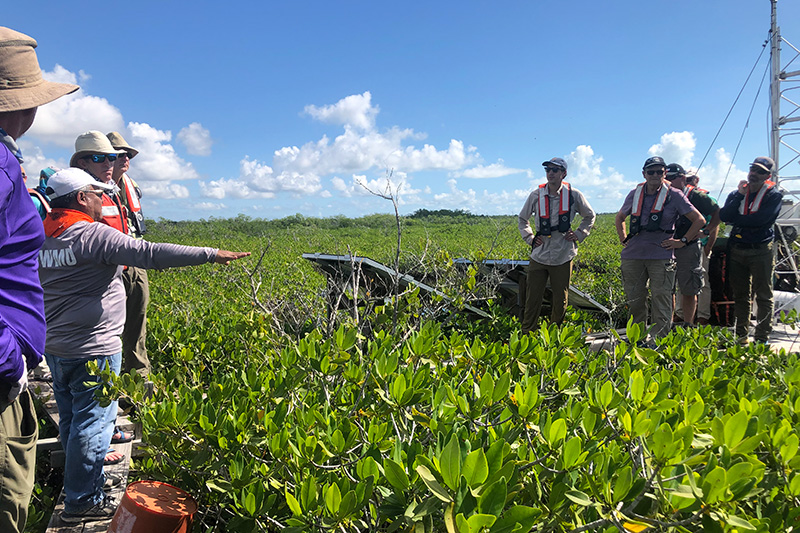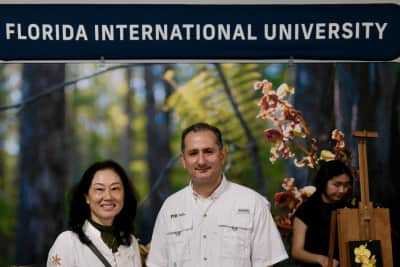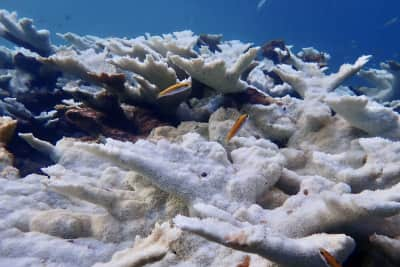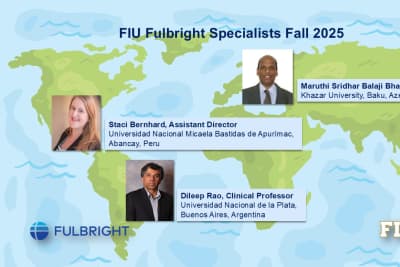Everglades Science and Restoration Center
Leading the science behind one of the largest environmental restoration projects on the planet
Leading the science behind one of the largest environmental restoration projects on the planet

40+
Years working on research in the Florida Everglades
105+
Faculty, staff and students working on Everglades research, education and restoration
66
ForEverglades & Cristina Menendez Scholars since 2008
The FIU Everglades Science and Restoration Center is committed to delivering the science for effective restoration and policy for the Florida Everglades. Our diverse expertise and leadership has helped guide restoration for more than four decades. Located on the edge of Everglades National Park and with more than 100 researchers focused on the Everglades, FIU is helping to create an inspiring and sustainable future for this environmentally and economically important ecosystem.

SCIENCE
FIU researchers have spent more than four decades providing the science to guide restoration and protection of water resources and wildlife in and around the Florida Everglades. As part of this work, FIU leads the National Science Foundation's Florida Coastal Everglades Long-Term Ecological Research program.

EDUCATION
FIU provides hands-on instruction for students interested in careers supporting the Everglades. This includes degrees in sustainability and the environment, biology, chemistry, global sustainable tourism, engineering, public policy and more.

ENGAGEMENT
Our work includes collaborations with local, regional, state, tribal and national agencies, the Everglades Foundation, universities, research institutes and community organizations in support of restoration. Our Everglades Outreach Team provides free community education programs.
Our job is to advance Everglades restoration. We can only do this with the science behind us. FIU has been instrumental in helping us understand the vulnerabilities of the Everglades and in moving forward with restoration and preservation.Stephen Davis, Chief Scientist for the Everglades Foundation

One of only 27 long-term, integrative science programs funded by NSF, the FCE LTER is based at FIU and includes more than 140 scientists across 32 institutions who study how human activities interact with biological processes to transform the Everglades. Scientific findings inform and guide the science, assessment, advocacy and public awareness of Everglades restoration.
FIU led the research that established a water-quality standard to protect Everglades National Park from excess phosphorus. Decades of fertilizer use in nearby areas had polluted the River of Grass, leading to devastating ecosystem changes. By limiting phosphorous, our scientists helped chart a course for restoration. The standard was incorporated into the federal Comprehensive Everglades Restoration Plan and is still in place today.
Research facilities in the Institute of Environment provide monitoring, sampling, analysis, field operations support and other services. Our research groups feature experts studying specific phenomena and topics related to Everglades health, restoration, ecosystem services, economic impact and more.
Experts in FIU's Institute of Environment work with partners across the world to increase impact of research and community projects. This includes Everglades National Park, the Everglades Foundation, the Miccosukee Tribe of Indians, the South Florida Water Management District and many more focused on the Everglades.
The Everglades is home for threatened and endangered species, some of the oldest cypress trees on the planet and the largest continuous seagrass meadow on Earth. Providing drinking water for 9 million Floridians, the Everglades also serves as a buffer for coastal storms, absorbs CO2, and supports Florida fisheries, recreation and tourism.

FIU showcases botanical research at nation’s largest orchid festival

FIU Institute of Environment partners with Football for Peace on sustainability

Catastrophic heat wave wiped out 2 endangered corals in the Florida Keys. Now what?

Rising seas threaten Florida’s state tree

Three FIU Fulbright Specialists share expertise across the globe

How clean is the air we breathe?